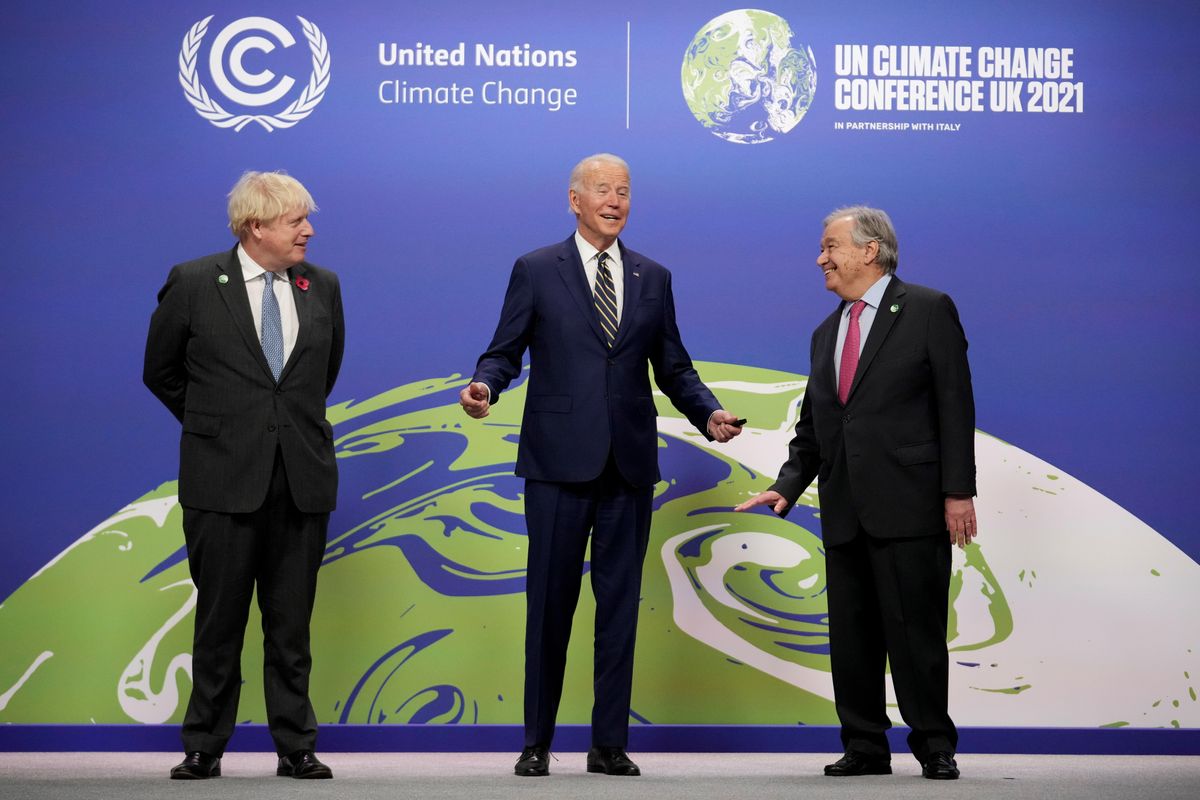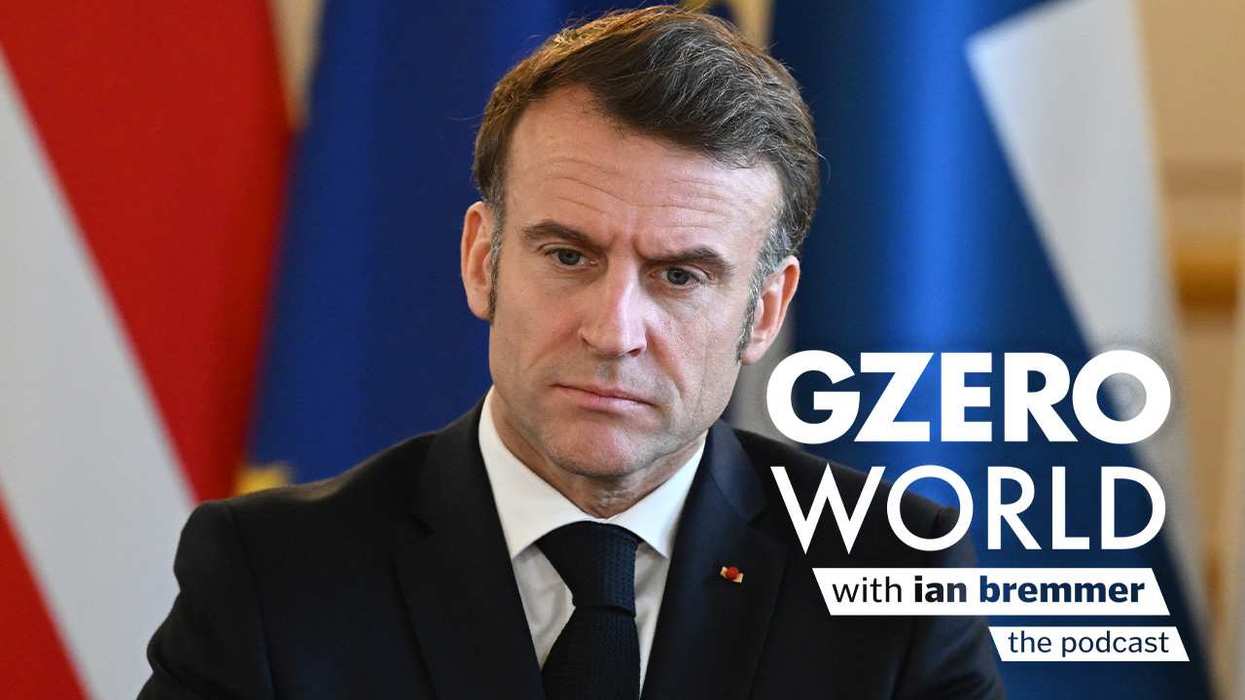COP26 kicks off. COP26 kicked off in Glasgow with high-minded comments from world leaders. Unlike his predecessor, US President Joe Biden delivered all the right talking points, in particular by calling for tougher action on emission-reduction targets. France's Emmanuel Macron said much the same, as did the UK's Boris Johnson, the summit's host. UN chief Antonio Guterres said that current emissions pledges don't go far enough. But for all the progress being made – including a significant pledge by the G20 over the weekend to end overseas funding for coal plants – current promises fall short of the Paris Climate Accord goal of limiting global warming to 1.5 degrees Celsius above preindustrial levels. Xi Jinping of China, the world's largest carbon emitter, is not attending the summit, and he recently announced an emissions target that is no more ambitious than the one he set six years ago in Paris. Similarly, the US, the next largest emitter, has set an ambitious goal of reducing emissions by 50 percent by 2030. But the Biden administration has so far failed to get Congress to approve the spending for its plans. Other leaders of coal-producing countries like Australia's PM Scott Morrison and India's PM Narendra Modi have shown up in Glasgow only to face criticism for their less-than-lofty climate goals.
SCOTUS kinda sorta says abortion law challenge is OK. Following hours of contentious arguments, a majority of US Supreme Court justices on Monday appeared to agree that it is possible for abortion clinics to challenge a new state law in Texas that drastically limits the legality of the procedure. For the conservative-dominated court — which voted to allow the law to go into effect in September while opponents prepared their law suits against it — the novel structure of the Texas law is the main issue. Texas legislators have tried to circumvent the constitutionally-protected right to abortion by allowing private citizens to sue abortion providers, rather than by empowering state officials to shut down abortion clinics directly. In effect that means that the law escapes direct Federal oversight. Leading conservative justices on the court suggested this is a "loophole" which limits opponents' rights to a "full constitutional defense" of their position. For now, however, the Texas law remains in effect pending the outcome of the suits that SCOTUS has appeared to greenlight. On December 1, the court will hear arguments about the state of Mississippi's ultra-restrictive new abortion law. Women's right to abortion in the US has been constitutionally-protected since the landmark 1973 Roe vs Wade SCOTUS decision but a number of Republican state legislatures have passed laws that defy this ruling in hopes of persuading the current Supreme Court to overturn it.
Tigrayan forces make gains. The ongoing conflict in Ethiopia has drastically intensified in recent days, with Prime Minister Abiy Ahmed calling on his allies to redouble their war effort after the rival Tigray People's Liberation Front claimed control over two key cities that are crucial to connecting the group's northern stronghold to the country's capital Addis Ababa. Another armed group at odds with the government, the Oromo Liberation Army, also said it had captured a key city on the same highway to the capital, triggering a massive problem for the Abiy government that's been locked in an almost year-long conflict with the TPLF who had previously dominated Ethiopian politics. Importantly, as the rebels advanced on the capital, the government did an abrupt about-face with a statement that appeared to say it would be open to negotiating with the TPLF. One of the group's immediate demands has been for the government to lift a blockade on the Tigray region that's blocked international aid from entering, creating a humanitarian crisis.


















